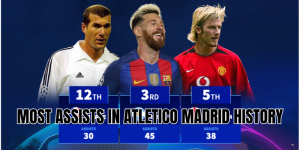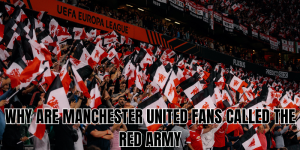You often hear supporters call the team The Citizens (or “Cityzens”). But how did that nickname come to be? In this article, GypsyGoal will accompany you to explore the roots, evolution, and deeper meaning behind why is Manchester City nicknamed the Citizens — and what it signifies to the club and its fans today.
The origin of the “Citizens” nickname

The simplest explanation for the nickname lies in semantics: Manchester City is, after all, a “City” club. By extension, its supporters become “citizens.” Over time, The Citizens emerged as a natural linguistic offshoot of the club’s name. That said, the story is richer when you dig into Manchester City’s early identity and its relationship with the community.
From Ardwick to Manchester City
The club’s roots stretch back to a parish team (St Mark’s, West Gorton), later reorganized as Ardwick Association F.C., before formally taking on the name Manchester City in 1894., the identity of “City” became central. As the club established itself in the city’s life, the idea of belonging to “Manchester” carried more weight — and so the concept of citizens naturally followed.
A name with class and belonging
In the late 19th and early 20th centuries, football clubs were often tightly tied to their local communities. Calling someone a “citizen” suggests membership, shared stake, pride—not simply a spectator. In this sense, the term cemented the emotional bond between club and supporters.
Thus, the nickname isn’t just a play on words; it hints at Manchester City’s ambition to represent the people of Manchester, not just as a club but as a social institution embedded in civic identity.
Evolution: from “Citizens” to “Cityzens” and back

Over time, the nickname itself has evolved. Many now prefer the variant “Cityzens” (with a “z”) — a clever blend of Citytizens. This re-spelling has become especially prominent in recent years, propelled by marketing, fan culture, and the club’s branding strategies.
- The club’s official free membership program refers to members as “Cityzens,” reinforcing that spelling in fan engagement.
- “Cityzens At Home,” a digital initiative during the COVID-19 pandemic, further popularized that stylized spelling.
- Nevertheless, “Citizens” remains a valid and traditional label, still used in many contexts and still appearing alongside “Cityzens” in club materials and fan commentary.
This dual usage reflects both continuity and adaptation. The “z” version brings flair and modern branding; the “s” version carries heritage.
Symbolic meaning: more than just a nickname

Understanding why is Manchester City nicknamed the Citizens goes beyond etymology — it reveals layers of symbolism and rivalry dynamics.
An inclusive identity
By calling supporters “citizens,” the club lays claim to a sense of shared ownership. Whether you grew up in Manchester or came, you can symbolically become one of the “citizens” of this footballing city. That inclusiveness has helped expand the fanbase far beyond local postcode boundaries.
A counterpoint to rival identities
There’s a subtle jibe in the choice of “Citizens.” Some commentators believe it serves as a counterpoint or even a gentle taunt toward Manchester United — implying that City fans are true locals or stakeholders of Manchester, while United’s fanbase is sometimes seen as more global, detached, or less locally bound.
Identity through colors and chants
Manchester City also bears the nickname The Sky Blues, owing to the club’s traditional home colors, and The Blues more generally. Yet, The Citizens invests identity in the people behind the club, not just its visual aesthetic. The nickname emphasizes fandom, belonging, and shared spirit — complementing the color-based labels.
How “Citizens” is used in culture and media
Over decades, The Citizens has found its way into chants, writing, and media narratives. You’ll see it in:
- Match previews or headlines: “The Citizens face a tough test away.”
- Fan forums and social media: “Citizens, stand tall tonight!”
- Club media: combining “Sky Blues” and “Citizens” in storytelling about fans.
The versatility of the nickname allows it to appear in slogans, social campaigns, and identity narratives. The dual spelling (Citizens / Cityzens) gives flexibility — nostalgic and modern.
Notable comparisons: club nicknames that echo this pattern
Manchester City is not alone in using a nickname tied to “City → Citizens.” Other clubs, especially those with “City” in their names, have seen similar usages, though not always enduring ones. Yet few have sustained the kind of emotional weight that “The Citizens” carries at Manchester City.
One caution: Norwich City once used “Citizens” as a nickname historically, but that usage has long since faded and the club is now mainly known as The Canaries. Manchester City’s adoption, in contrast, has persisted and evolved.
Why the nickname matters today
You might ask: in 2025, with Manchester City a global brand, does The Citizens still resonate? The answer is yes — perhaps more than ever.
- It roots the club in place and community, countering notions of detachment.
- It emphasizes that fans are part of the story, not passive observers.
- It gives the club a unique narrative voice: while many clubs use color or animal nicknames, Manchester City uses a people-centric identity.
In a world of branding, money, and global markets, The Citizens still speaks to heart and belonging.
Final Thoughts
The Citizens remains much more than a clever label — it captures a legacy, suggests belonging, and bridges history with modern identity. Why is Manchester City nicknamed the Citizens? Because it’s a proud linguistic expression of connection—between club, city, and fans.
If you’re curious to explore more nicknames of football clubs or dive into Manchester City’s rivalries, stories, and legends, stay tuned to GypsyGoal — where the spirit of the beautiful game comes to life.






